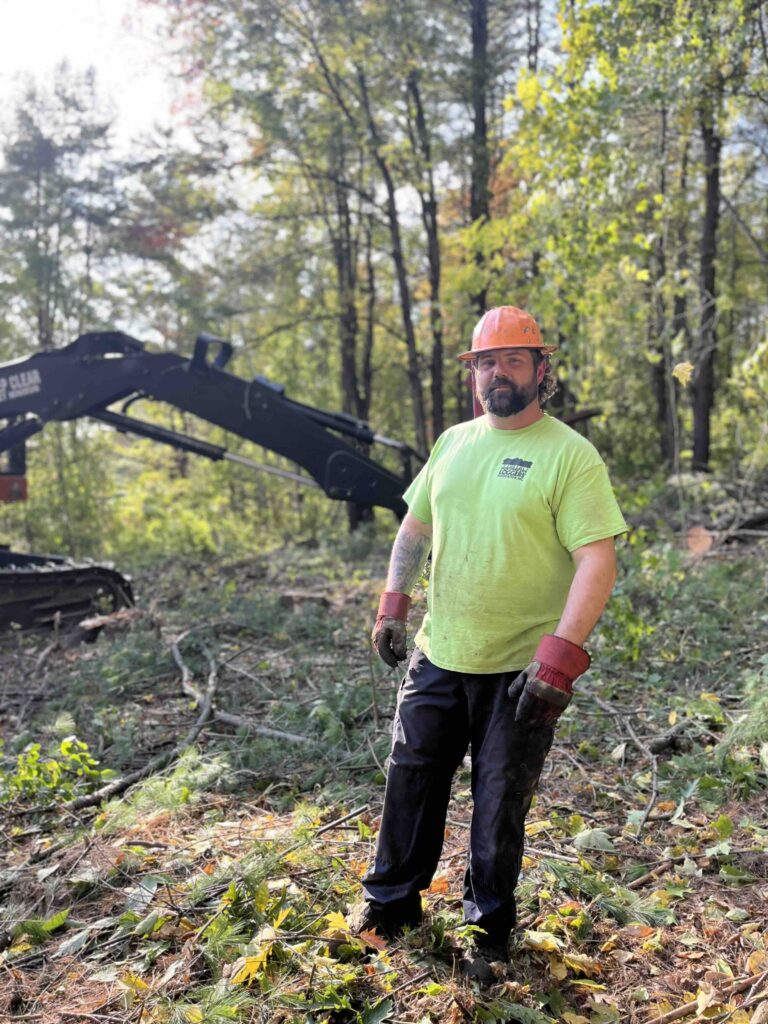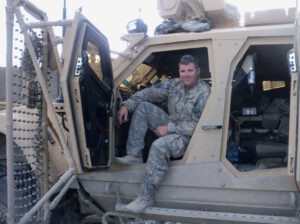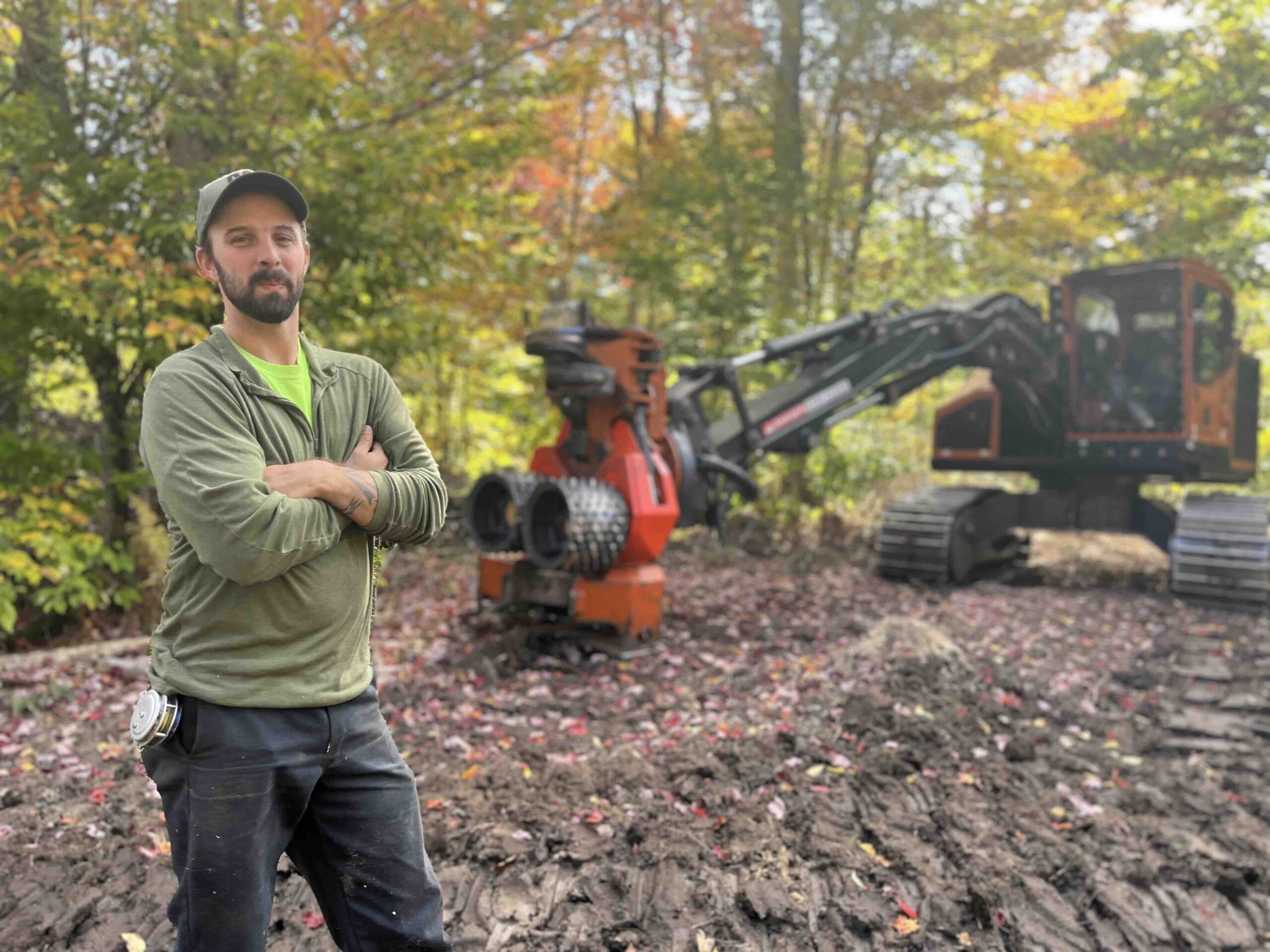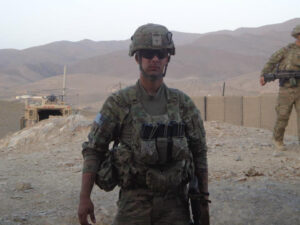Profile
Veterans in the Woods
By Erin Kessler
For a young person finding their way in the world, joining a branch of the US military has often been a path to gaining valuable life skills, on-the-job training, and a multitude of career opportunities. Two loggers, now in their 30s and early 40s, both from rural Vermont, have traveled around the world serving and fighting for America and have found themselves back in the woods. Here, they share their stories and the valuable lessons they’ve learned.
What I Always Wanted to Do

After logging in Vermont for a few years following high school, Caleb Currie had the urge to start a career in law enforcement. This led him to a short stint as a corrections officer, then an enlistment in the Army in 2009 as an active-duty military police officer. Currie trained at Fort Leonard Wood, Missouri, and after boot camp was stationed in Grafenwöhr, Germany. Seven months later, he was deployed to Afghanistan. There, he and his company supported infantry in combat missions as convoy security, conducted meet and greets, and supported clearing villages in Paktika Province, on the border of Pakistan.

At that time, one of the US military’s main missions was to train the Afghan police force. Currie was embedded at an Afghan police station, fortifying the station and providing local police with organizational and operational support. The mission was to “win the hearts and minds” of the local people and foster trust in their new government.
Currie served in Afghanistan for about a year and then went back to the military base in Grafenwöhr where he was an MP for the remainder of his military career. Once he served his four-year contract, he returned to Vermont, did some logging in the winter, and then became a civilian police officer for the towns of Brattleboro and Chester. But after three years, the woods inevitably called him back. Over the years he’d gotten married and divorced, and had two young children. “The police officer gig, you know with what I had going on in my life, I just needed lesser stress at the time. I knew this industry and I had a passion for it, so I made the choice [to get back into logging] so I’d see my kids more often. But still now I’m working 65 hours a week…”
When asked what skills he’s carried over to logging from his time in the military, Currie says productiveness and efficiency are top of mind. “You’re always trying to think, how can you strive to be better and do better than what you’re doing.”
After he left law enforcement, Currie spent five years working for logger Dave Goodhouse in southern Vermont. “Dave and I spent hours the phone talking about how can you be more efficient, and what can you do differently…”
There are many other things Currie learned in the military that he now lives by. A sense of discipline, teamwork, integrity, and internal fortitude are among them. He also adds that “leadership is a big thing.” Currie spent several years on the board of the Vermont Forest Products Association and has traveled to Washington DC with the American Loggers’ Council to represent loggers and lobby for their interests. “There’s a difference between a leader and a boss. A boss tells you to do something and then walks away. A leader will tell you do something and show you how to do it. A leader takes care of their people in different ways.”
Curry now works as a feller buncher operator for Crown Point Excavation in Springfield, VT, with future aspirations to become his own boss one day. He was one of the first to participate in the Vermont Forest Business School program led by Steven Bick in 2020, and he’s written out a business plan. He’s been working long hours cutting wood to save up enough money to start his own operation.
On a warm sunny day this fall, Currie was working on a small plot on a hillside clearing land for the Veterans of Foreign Wars in Springfield. One of the owners of Crown Point, Shawn Pollard, had donated the company’s time and manpower for a volunteer project to create some mowable fields for the VFW, and Currie’s skills as an operator were being put to good use on the steep ground next to the VFW building and parking lot. The trees had to be laid down very precisely in order for the skidder to maneuver them down the narrow skid trail to the small landing. For Currie, the project would only take him a day or two to complete, but he was happy to do it, not just for the good cause but because he fully enjoys his job. “I’m a logger through and through and I just really like cutting wood.”
Building a Life After the Military

Craig Hammer started working for his father, Mike Hammer, right out of high school in 2007. Three years later, the US was still in a recession and his father told him he was going to retire from logging. It was then that Hammer decided he would join the Army. He enlisted in the Army’s Airborn Infantry in 2010, and after basic training he went to jump school at Fort Benning, Georgia. He was then stationed at the US Army Garrison Italy headquarters in Vicenza, Italy. Like Currie, shortly after being stationed abroad, Hammer was deployed to Afghanistan.

Hammer served in Afghanistan during a time of transition – the US Army was training the Afghan National Army to take over their country again – the so-called “drawdown.” While he was deployed, Hammer was on four-day rotations serving missions, Force Pro (protecting your base), and QRF (quick reaction force). “We had a fairly quiet deployment compared to a lot of other units, which is a good thing in a way, so for a single guy… you didn’t have to worry about much other than staying alive,” Hammer says.
“There were definitely stressful days and then there were days that were fun. [I saw some] scenery that your average person will never get to see. There’s very little light pollution over there at night so the amount of stars you actually get to see on a clear night was pretty amazing.”
After serving, Hammer was ready to come home. He’d jumped out of planes a total of 21 times. “It was fun for a while, but I was starting to get tired of it. A lot of night jumping, at midnight or 1:00 or 2:00 in the morning, and you can’t really see what’s going on…”
In the end, Hammer’s father didn’t end up retiring, and he jumped right back into logging with his dad. He has taken over the business and since his father, now 74, has fully retired he’s been working on his own. Up until late July of this year, Hammer was a conventional logger. He has recently purchased a Barko 260B harvester with a JP Skidmore fixed head and a Rottne F14 8-wheeler forwarder. He also has an excavator, a dozer, and a log truck. “It’s a lot [of equipment] for one guy but every piece serves a purpose,” says Hammer. “It’s going to be easier to find somebody to run a forwarder than find somebody to pull cable off a cable skidder.”
As Hammer’s business evolves, he is finding that his experiences in the Army have served him well. “Time management, I would say, is a pretty big one. Especially now I’ve made this transition and I’ve got these huge payments, you [need] to make better use of your time. I think it’s very a helpful skill to basically have pounded into you for 4 years,” says Hammer.
A few days before I met with Hammer, it had been a miserable, rainy day where he was working near Whitingham, VT, just north of the Massachusetts border. “I had to pick up a new gate that morning and I could have called it a day afterwards, but I knew I had wood on the landing.” He spent the rest of the day trucking wood to a client. “I could have just said ‘it’s a crappy rainy day, I’m done,’ but I did that and cut wood on Saturday instead.”
Being in the Army, Hammer has also become very comfortable with adapting to and overcoming difficult situations. “A lot of times in the Army you have these plans of how it’s going to go, and they don’t go that way. You just have to be able to change on the fly. On a logging job you could have the perfect plan and it will not work.”
Hammer also says that as an E5 (a sergeant in the Army), the self-discipline he gained from that leadership role helped him get to where he is now and will be invaluable once hires a forwarder operator. As far as safety is concerned, in high stress, fast-paced situations, injuries happen, and his Army medical training and “knowledge how to stop major hemorrhaging or whatever the case may be is definitely useful.”
Hammer notes that although he has been relatively successful after serving in the Army – getting married, starting a family, taking over his father’s logging business – other veterans have had a tougher time. “Veterans, as a group of people, have one of the highest suicide rates in the country,” he says. “If there are any other veterans out there who read this story and they get some inspiration from it, then it will be worth it.” Hammer’s advice to any veteran who is struggling is not to isolate yourself and reach out to “a good friend who you can trust.”
Interested in more articles like this? Subscribe to the Northern Logger & Timber Processor.
